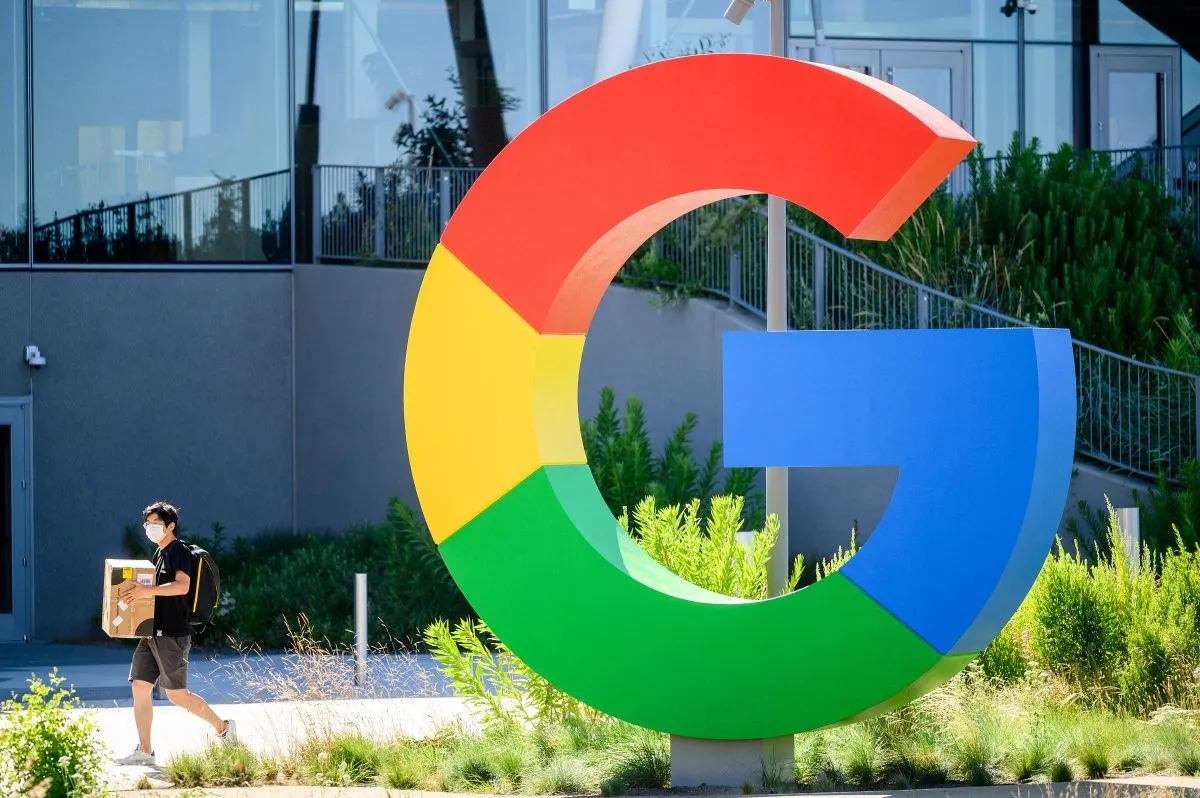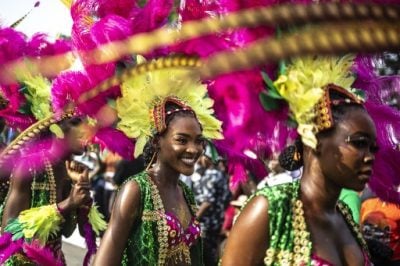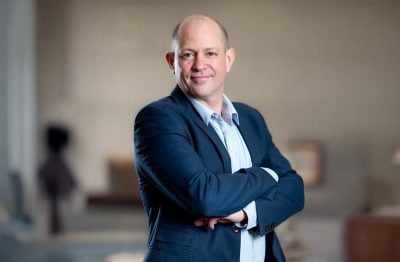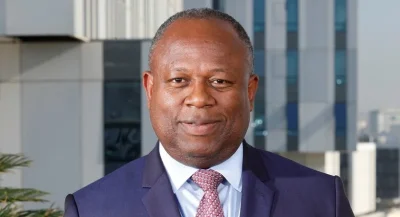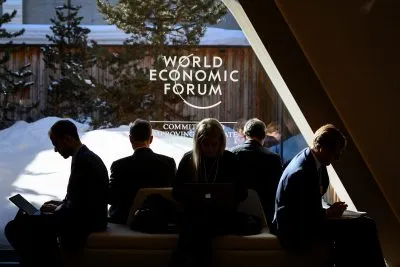In a bid to enhance connectivity, support local startups, and drive innovation, Google in 2021 committed $1bn to a series of investments in Africa over a five year period. Three years on, the tech giant remains bullish on Africa and is advocating for increased long-term investments in the continent’s digital economy. It argues that the increased adoption of digital technology in Africa presents one of the greatest opportunities for the continent’s economic transformation.
According to a recent study commissioned by Google and conducted by consultancy Public First, every dollar invested in digital technology in Africa will yield over two dollars for the region’s economy by 2030. This, Google says, highlights the massive multiplier effect of investments in Africa’s digital economy.
Released in September, the study also found that by leveraging Google’s tools – such as search, maps, and YouTube – businesses, organisations, publishers, creators, and developers across the region generated $16bn in additional economic activity in 2023.
African Business interviewed Alex Okosi, managing director for Google in Sub-Saharan Africa. The discussion focused on Okosi’s thoughts on the major trends, opportunities, and challenges in Africa’s digital economy, and how the growth of YouTube has supported African content creators.
AB: How would you describe the current state of the digital economy in Africa, and what are the most significant opportunities for growth?
AO: Africa is a continent at work, with more people coming online every day (about 350m, out of 1.2bn people) and using the internet to better their lives everyday. According to the recently launched Google Africa economic impact report, the next decade is set to be Sub-Saharan Africa’s digital decade. For the first time, over half the population in Sub-Saharan Africa will have access to the internet, while emerging technologies like artificial intelligence (AI) and the cloud could significantly accelerate the continent’s development. Google’s mission to organise the world’s information, making it universally accessible and useful, is therefore particularly relevant to the Sub-Saharan region. To ensure economic and societal growth, it’s vital that everyone is given the opportunity to harness the benefits of technology. So we think there are many opportunities for growth especially in AI, which can help fast-track Africa’s development.
AB: What are the primary challenges Google has identified in driving digital transformation across the continent, and how is the company addressing them?
AO: The infrastructure challenges faced by the continent are well documented. We have decided to play our part by launching the Equiano subsea cable which came into operation in 2022 as part of our $1bn commitment to the continent. The cable runs along the Atlantic coast, from Portugal down to Nigeria, Togo, Namibia and all the way to South Africa. It is expected to bring more people to the internet, while at the same time reducing costs and increasing internet speeds. We have also recently announced Umoja, another subsea cable that will connect Africa to Australia. So we are doing quite a lot to help alleviate some of the infrastructure challenges the continent encounters.
We are also focusing our efforts on making sure that our people upskill in order to prepare for a better future. We recently announced that we are committing $5.8m to Google.org to support AI and cybersecurity training this year across Nigeria, Kenya, and South Africa. The funding will support organisations providing foundational AI skills to workers, to equip them for the digital economy; educate teenagers about AI and its safe and ethical use, empowering future generations; equip non-profit leaders with AI knowledge to enhance their impact and drive social change; and support the public sector to develop and utilise AI solutions.
AB: What public policy priorities does Google believe are essential for fostering a robust digital economy in Africa?
AO: We are constantly working with governments to make sure Africa is prepared for the changes that come along with new technologies. Our AI sprinters report, which provides a roadmap for developing countries to take advantage of AI’s potential, highlights four key recommendations.
Firstly, we need to revolutionise infrastructure with 100% adoption of cloud-first policies. Cloud computing is essential for governments, local enterprises and organisations to deploy AI systems cost-effectively, securely and at scale – ensuring that AI is widely and inclusively deployed. Policymakers should advance cloud-first initiatives that prioritise cloud solutions over traditional IT systems.
Secondly, we must support people with national AI skills initiatives. AI promises to propel economies forward – but this can only happen if workers know how to use AI to enhance their productivity and expertise. Google.org’s initial AI skilling commitment for developing countries is a first step. More collaboration between the public and private sectors is needed to build AI fluency, strengthen STEM education and increase online learning opportunities.
Next, we must step up efforts to modernise national data systems. High-quality datasets that represent diverse perspectives, languages and cultures are essential for training AI models effectively for local markets. Governments should commit to better utilising and sharing data to improve public services like healthcare, education, transportation and disaster response, and invest in the infrastructure needed to promote responsible use of data. Similarly, governments should enable trusted cross-border data flows to ensure models and systems are trained on rich, geographically diverse data.
Finally, continued AI innovation – both in AI models and applications – requires the right regulatory framework, one that ensures that AI can be responsibly and boldly deployed. Governments should pursue risk-based and proportionate approaches to regulation; maintain privacy and copyright frameworks that enable use of publicly available information while respecting legitimate rights; support and contribute to the development of international technical standards for AI; and adopt national AI strategies.
AB: What is Google’s long-term vision for the digital economy in Africa, and what key milestones do you aim to achieve in the coming years?
AO: We believe that the continent has huge potential for growth; it has the youngest population in the world, many of whom are early adopters of digital tools. We want to help the continent to overcome many of its reported challenges and we think we have the capacity to do it in conjunction with our partners, such as governments and innovative entrepreneurs. We are already making some inroads, with our products supporting an estimated $16bn in economic activity across Sub-Saharan Africa in 2023. Our products are more than tools, they are engines for economic growth. 70% of businesses in the region have already indicated that our tools are crucial to their operations but we want to see more progress, at a faster speed.
AB: What specific monetisation tools and programmes does YouTube offer to African content creators?
Alex Okosi: As our creator ecosystem grows, we continue to invest in expanding the ways in which more creators can make it – no matter how long you’ve been doing it or what your preferred format is. Our primary monetisation tool is the YouTube Partner Programme (YPP), an umbrella programme that gives creators access to monetisation features as well as revenue sharing from ads being served on their content. At the moment, the programme is available to creators in Ghana, Nigeria, Kenya, South Africa, Zimbabwe, Uganda, Morocco, Senegal, Tanzania, Egypt, Algeria, and Tunisia. In addition to the YPP, we rolled out features like Super Chat, Channel Memberships, and Super Thanks (available in Sub-Saharan Africa in Kenya, South Africa, and Nigeria). Our YouTube Partner Program pays out more than any other creator monetisation platform.
AB: What are the main challenges African content creators face in monetising their content, and how is Google addressing these issues?
AO: Maintaining a healthy ecosystem where both creators and advertisers thrive is one of our largest priorities within our monetisation workstream. This includes different pillars like, making sure advertisers in Africa are aware of the great work YouTube creators are producing on the platform, as well as supporting creators who are exporting African music, culture, and comedy to the world and connecting them with new audiences around the globe. Parallel to that work, the YouTube partnerships team continues to make sure our top creators are aware of the ways to monetise their content and how to maintain that steady stream of revenue is our largest focus.
AB: Can you elaborate on any initiatives or programmes Google has launched to support emerging YouTube creators in Africa?
AO: The recently concluded Black Voices Fund was launched to amplify black perspectives and experiences on YouTube. Through the programme, we’ve managed to support over 500 creators and artists from across the world. In the process, learning so much about what this next generation of creatives need to grow their channels, businesses and art. The programme had many creators from Nigeria, South Africa, and Kenya (as well as the US and UK) and its alumni have gone on to have successful careers on YouTube like Ify Mogekwu & Coffeenomilk.

 Sign in with Google
Sign in with Google 